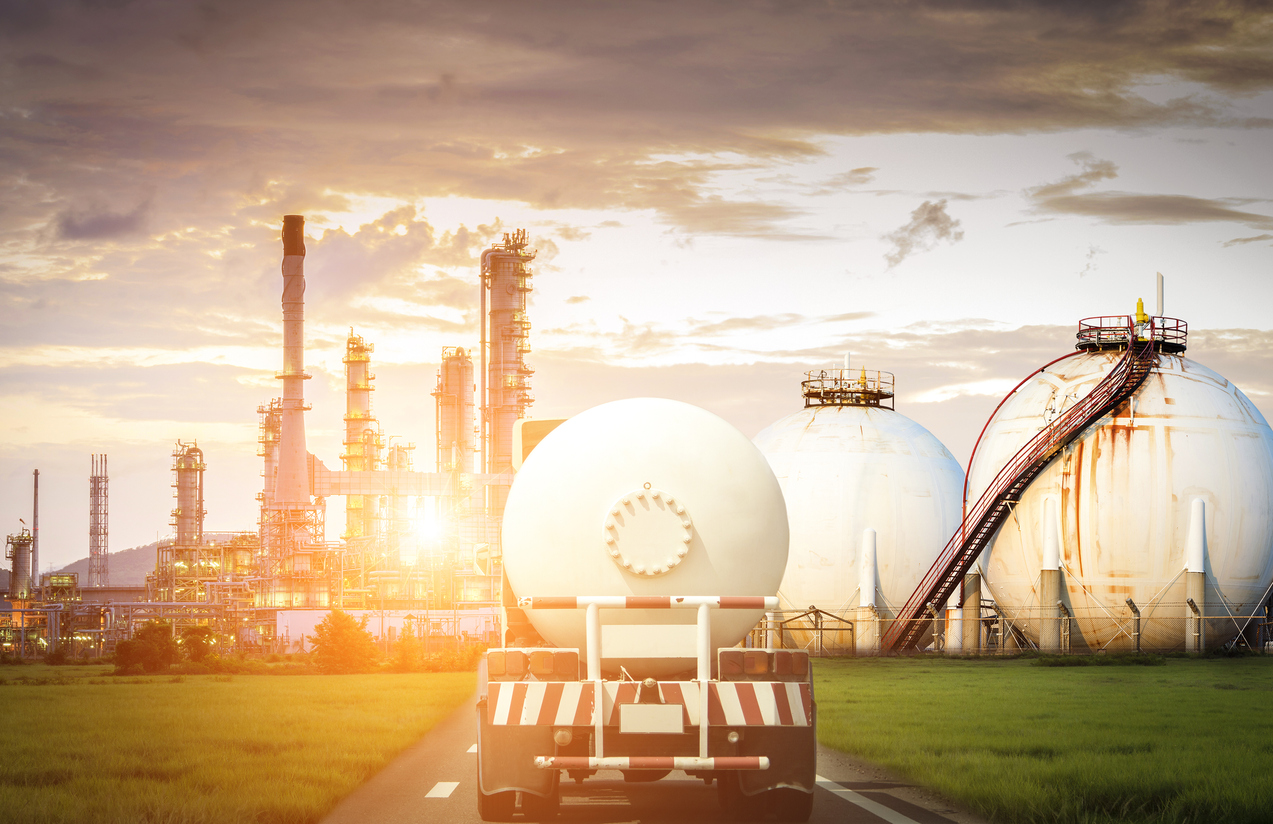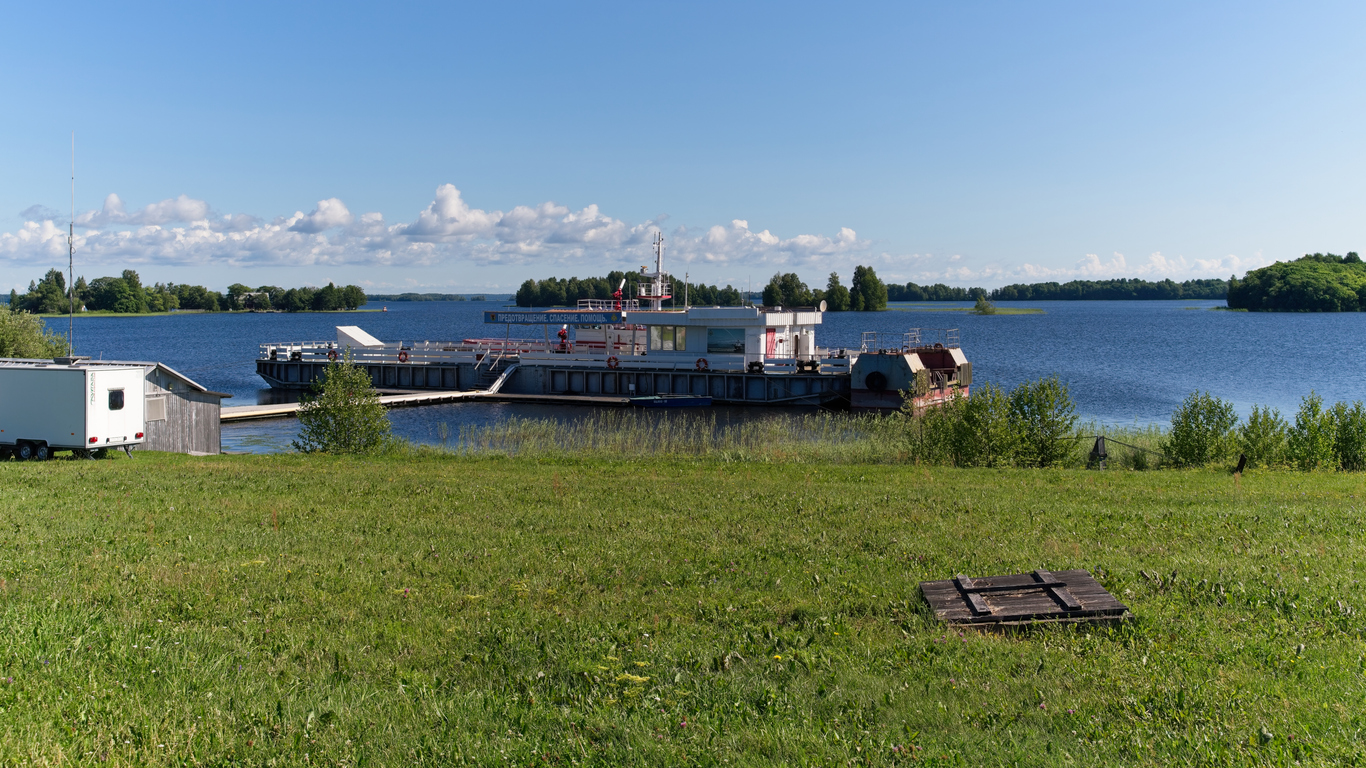Exploring the Distribution of Gaseous Fuels Through Mains in Nigeria with Wigmore Trading
Exploring the Distribution of Gaseous Fuels Through Mains in Nigeria with Wigmore Trading
Gas is an essential source of fuel for countless homes and businesses in Nigeria, powering everything from stoves to industrial machinery. But have you ever stopped to think about how all that gas makes its way from the source to your kitchen or factory? In this blog post, we’ll be exploring the intricate distribution network of gaseous fuels in Nigeria with Wigmore Trading, a leading supplier in the industry. Join us as we uncover the fascinating journey that these essential gases take before reaching their final destination!
Introduction to Wigmore Trading and their role in the distribution of gaseous fuels in Nigeria
Introduction to Wigmore Trading and their Role in the Distribution of Gaseous Fuels in Nigeria
Wigmore Trading is a leading distributor of gaseous fuels in Nigeria. With over 20 years of experience in the industry, Wigmore Trading has established itself as a reliable and trusted supplier of Liquefied Petroleum Gas (LPG) and Compressed Natural Gas (CNG) to various industries and households across the country.
The company was founded with a mission to provide safe, clean, and affordable energy solutions to meet the growing demand for gaseous fuels in Nigeria. With a strong focus on quality products, efficient services, and customer satisfaction, Wigmore Trading has become a name synonymous with excellence in the distribution of gaseous fuels.
One of the key roles played by Wigmore Trading is ensuring that gaseous fuels are readily available throughout Nigeria. The company operates through a network of strategically located storage facilities and distribution centers across major cities in the country. This enables them to efficiently supply LPG and CNG to customers nationwide.
In addition to providing access to gaseous fuels, Wigmore Trading also plays a crucial role in promoting safety awareness among its customers. The company adheres strictly to safety regulations set by regulatory bodies such as the Department of Petroleum Resources (DPR) and Standards Organization of Nigeria (SON). They also conduct regular safety training for their staff members as well as educate end-users on proper handling and usage of gaseous fuels.
Another significant role played by Wigmore Trading is advocating for the use of cleaner energy sources such as LPG and CNG. These fuels have been proven to be more environmentally friendly compared to traditional fossil fuels like kerosene or firewood. By promoting cleaner energy sources, Wigmore Trading is contributing towards reducing carbon emissions, improving air quality, and creating a more sustainable future for Nigeria.
Moreover, Wigmore Trading works closely with local communities to educate them about the benefits of using gaseous fuels. They have implemented various initiatives to promote the adoption of LPG and CNG in households as a safer and more efficient alternative to traditional fuels.
Wigmore Trading plays a crucial role in the distribution of gaseous fuels in Nigeria. Through their efficient supply chain, commitment to safety, and advocacy for cleaner energy sources, they are contributing towards meeting the growing demand for gaseous fuels while also promoting a healthier and more sustainable environment for all.
The current state of gas mains distribution in Nigeria
The distribution of gaseous fuels through mains in Nigeria has been a topic of concern for many years. The current state of gas mains distribution in the country is complex and faces numerous challenges.
One major issue is the inadequate infrastructure for gas transportation and distribution. According to data from the Nigerian National Petroleum Corporation (NNPC), only about 20% of the country’s population has access to natural gas through pipelines, leaving the majority of Nigerians reliant on other sources such as liquefied petroleum gas (LPG) cylinders or kerosene stoves for their cooking and heating needs.
This lack of infrastructure is due to several factors, including insufficient investment in pipeline construction and maintenance, as well as security concerns in some regions where pipelines are frequently vandalized. As a result, many areas remain underserved by gas mains, leading to a higher demand for alternative energy sources that are often more expensive and less efficient.
Another challenge facing the current state of gas mains distribution in Nigeria is limited domestic production. Despite being one of Africa’s top producers of natural gas, most of it is exported rather than utilized domestically. This export-focused approach has led to underinvestment in domestic production facilities, further exacerbating the shortage of natural gas available for local consumption.
Furthermore, there are regulatory barriers that hinder private sector participation in developing and expanding gas mains networks. The existing regulatory framework favors government-owned entities over private companies, making it challenging for new players to enter the market.
However, efforts have been made by the Nigerian government to address these challenges and improve the distribution of gaseous fuels through mains across the country. In 2017, President Muhammadu Buhari launched an initiative called “The Gas Revolution Agenda,” which aims to increase domestic utilization of natural gas by encouraging investment in infrastructure development and promoting public-private partnerships.
Additionally, initiatives such as the Nigerian Gas Flare Commercialization Program seek to reduce flaring and promote domestic use of natural gas. These efforts have already shown some positive results, with an increase in the number of households and industries connected to gas mains in recent years.
While there are still significant challenges facing the distribution of gaseous fuels through mains in Nigeria, there have been notable improvements in recent years. With continued investment and strategic policy interventions, it is possible for more Nigerians to have access to clean and affordable energy through the expansion of gas mains networks.
Benefits of using gaseous fuels over traditional fossil fuels
The use of fossil fuels, such as coal, oil, and natural gas, has been the primary source of energy for many years. However, with the growing concern over climate change and environmental pollution, there has been a shift towards using cleaner and more sustainable sources of energy. Gaseous fuels, such as liquefied petroleum gas (LPG) and compressed natural gas (CNG), have emerged as viable alternatives to traditional fossil fuels. In this section, we will explore the benefits of using gaseous fuels over traditional fossil fuels.
1. Lower Carbon Emissions: One of the main advantages of using gaseous fuels is that they produce significantly lower carbon emissions compared to traditional fossil fuels. This is due to their higher hydrogen-to-carbon ratio and cleaner combustion process. As a result, switching to gaseous fuel can help reduce our carbon footprint and mitigate the negative effects of climate change.
2. Cost-Effective: Gaseous fuels are generally cheaper than traditional fossil fuels. They require less processing and transportation costs since they can be distributed through mains or pipelines directly to consumers’ homes or businesses. This eliminates the need for expensive infrastructure like refineries or storage facilities that are required for traditional fossil fuels.
3. Abundant Supply: Nigeria is one of Africa’s leading producers of natural gas, making it an abundant source of gaseous fuel in the country. This means that there is a reliable supply available for domestic consumption without depending on imports from other countries.
4. Versatile Usage: Gaseous fuels can be used in various applications such as cooking, heating water, powering vehicles, and even generating electricity through combined heat and power systems (CHP). This versatility makes it a convenient choice for consumers who want an all-in-one solution for their energy needs.
5. Cleaner Burning: Unlike coal or diesel which produces high levels of pollutants like sulfur dioxide and particulate matter when burned, gaseous fuels burn cleaner with significantly lower emissions. This makes it a healthier and safer option for both the environment and public health.
6. Easy to Switch: Gaseous fuels can easily replace traditional fossil fuels without any significant modifications to existing appliances or equipment. This means that consumers can switch to gaseous fuels without incurring additional costs of purchasing new equipment, making it a seamless transition.
The benefits of using gaseous fuels over traditional fossil fuels are evident in terms of lower carbon emissions, cost-effectiveness, abundant supply, versatility, cleaner burning, and ease of switching. As Nigeria continues to explore ways to improve its energy mix and reduce its reliance on traditional fossil fuels, the use of gaseous fuels is a viable solution that offers numerous advantages for both consumers and the environment.
Challenges and solutions to distributing gaseous fuels through mains in Nigeria
Challenges and Solutions to Distributing Gaseous Fuels Through Mains in Nigeria
Nigeria is a country that heavily relies on gaseous fuels, such as natural gas and Liquefied Petroleum Gas (LPG), for its energy needs. These fuels are not only used in households for cooking and heating but also play a crucial role in industries and power generation. With the increasing demand for gaseous fuels, the distribution of these resources through mains has become an essential aspect of the energy sector in Nigeria.
However, this distribution process comes with its own set of challenges. One of the main challenges faced by distributors is the inadequate infrastructure for transporting gaseous fuels from production centers to end-users. The existing pipelines are old and not well-maintained, resulting in frequent leakages and disruptions in supply. This poses a significant risk to public safety and can lead to environmental damage.
Another challenge is the lack of access to reliable data on demand patterns and consumption trends, making it challenging for distributors to plan their supply chain effectively. This often leads to either oversupply or undersupply, causing financial losses for both distributors and consumers.
The high cost of setting up new pipelines or upgrading existing ones is also a major hurdle in distributing gaseous fuels through mains. This makes it difficult for smaller companies to enter the market and compete with larger players who have more resources at their disposal.
Moreover, there are regulatory barriers that hinder efficient distribution of gaseous fuels through mains. The licensing process can be lengthy and bureaucratic, delaying projects and adding more costs to distributors. Additionally, there is often a lack of transparency in regulations, making it challenging for companies to navigate through complex policies.
To overcome these challenges, innovative solutions need to be implemented by both government bodies and private companies involved in gas distribution. Firstly, there needs to be a strong focus on investing in infrastructure development, particularly pipeline networks that can transport gaseous fuels safely and efficiently. This will require collaboration between the government, gas distributors, and private investors.
Secondly, there is a need for improved data collection and analysis systems to gather accurate information on demand patterns and consumption trends. This will help in better planning and forecasting of supply, reducing wastage and ensuring consistent availability for consumers.
Regulatory barriers can be addressed by streamlining licensing processes and making regulations more transparent to encourage more investments in the sector. The government can also provide incentives to companies investing in infrastructure development or upgrading existing pipelines.
While there are challenges in distributing gaseous fuels through mains in Nigeria, these can be overcome with collaborative efforts from all stakeholders involved. By addressing these challenges and implementing effective solutions, we can ensure a reliable supply of gaseous fuels to meet the growing energy demands of Nigeria’s population.
Case studies: Successful implementation of gaseous fuel distribution through mains by Wigmore Trading
Case studies are a valuable tool for understanding the practical applications of any concept. In this section, we will explore some case studies that demonstrate the successful implementation of gaseous fuel distribution through mains by Wigmore Trading in Nigeria.
Case Study 1: Residential Area in Lagos
One of the first projects undertaken by Wigmore Trading was to provide gaseous fuel distribution to a residential area in Lagos. The main challenge was to create an efficient and reliable system that could cater to the needs of multiple households. The team at Wigmore Trading worked closely with the local authorities and residents to understand their requirements and design an appropriate solution.
The project was completed within six months, and the results were remarkable. The residents now had access to clean and affordable gaseous fuel, which significantly reduced their reliance on traditional fuels like firewood and kerosene. This not only improved air quality but also reduced household expenses. Moreover, the installation of mains infrastructure also paved the way for future expansion into nearby areas.
Case Study 2: Industrial Zone in Port Harcourt
Another noteworthy case study is the implementation of gaseous fuel distribution in an industrial zone in Port Harcourt. The client approached Wigmore Trading with a specific requirement – they wanted a cost-effective solution that could cater to their high energy demand without compromising on efficiency.
After thorough research and planning, Wigmore Trading proposed a customized solution that included gas pipelines along with pressure regulating stations and metering units. The installation process was carried out seamlessly by experienced professionals under strict safety protocols.
The outcome exceeded expectations as the industrial zone saw significant cost savings due to lower energy costs and increased productivity from uninterrupted power supply. Additionally, there was a noticeable reduction in carbon emissions, making it a win-win situation for both business owners and environmental advocates.
Conclusion
These two case studies highlight how Wigmore Trading has successfully implemented gaseous fuel distribution through mains in different settings – residential and industrial. Their expertise in understanding the needs of their clients and designing tailored solutions has been crucial to their success.
The results of these case studies are a testament to the potential of gaseous fuel distribution through mains in Nigeria. With Wigmore Trading’s experience and commitment, it is evident that this system can be effectively implemented across various sectors to improve energy efficiency, reduce costs, and promote sustainable development.
Future prospects and potential for growth in the Nigerian market
The Nigerian market has shown immense potential for growth in the distribution of gaseous fuels through mains. As one of the largest and most populous countries in Africa, with a rapidly growing economy, Nigeria presents a huge opportunity for businesses looking to expand into the gaseous fuel sector. In this section, we will explore the future prospects and potential for growth in this market.
Firstly, it is important to note that there is a significant demand for gaseous fuels in Nigeria. The country’s population of over 200 million people relies heavily on traditional sources of energy such as firewood and charcoal. However, as awareness about the harmful effects of these fuels on health and the environment grows, there has been a shift towards cleaner and more sustainable alternatives like propane and natural gas.
Moreover, with the government’s push towards diversifying its economy away from oil dependency, there has been an increased focus on developing other sectors such as power generation and industrialization. This has further fueled the demand for gaseous fuels as they are not only used for cooking but also play a crucial role in power generation plants and various industries.
Additionally, Nigeria’s infrastructure development plans offer great prospects for growth in the distribution of gaseous fuels through mains. The government has invested heavily in building new roads, bridges, airports, and ports which will improve logistics and make it easier to transport gas across different regions of the country. This will open up new markets for companies like Wigmore Trading who specialize in distributing gaseous fuels through mains.
Furthermore, advancements in technology have made it possible to convert liquid petroleum gas (LPG) into compressed natural gas (CNG) which can be transported via pipelines – reducing costs significantly compared to traditional methods such as trucking or using cylinders. This innovation presents an exciting opportunity for companies operating in this space to tap into previously inaccessible markets.
It is also worth mentioning that Nigeria’s favorable investment climate makes it an attractive destination for foreign investors looking to enter the gaseous fuel market. With a large pool of skilled and semi-skilled labor, a stable political environment, and a growing consumer base, Nigeria offers a conducive business environment for companies like Wigmore Trading to thrive.
The Nigerian market holds immense potential for growth in the distribution of gaseous fuels through mains. The increasing demand for clean energy, government initiatives to diversify the economy, infrastructure development plans, technological advancements, and favorable investment climate are all factors that make this market highly attractive. As such, it is no surprise that Wigmore Trading has chosen to expand its operations into Nigeria and tap into this lucrative market.
Conclusion: The importance of investing in alternative
Conclusion: The Importance of Investing in Alternative Fuels
The exploration of gaseous fuel distribution in Nigeria with Wigmore Trading has shed light on the potential benefits and challenges of using alternative fuels. While traditional fuels like diesel and petrol have served as the primary source of energy for decades, it is becoming increasingly evident that investing in alternative fuels is crucial for a sustainable future.
One of the main reasons for considering alternative fuels is their impact on the environment. As we continue to witness climate change and its devastating effects, finding cleaner sources of energy is becoming imperative. Gaseous fuels such as LPG and CNG emit significantly lower levels of carbon dioxide compared to traditional fossil fuels, making them a more environmentally friendly option. This reduction in emissions not only reduces our carbon footprint but also helps improve air quality by reducing harmful pollutants.
Furthermore, investing in alternative fuels can also have economic benefits. With rising global oil prices and increasing dependency on imported fossil fuels, using alternatives like LPG and CNG can help reduce our reliance on foreign countries for energy supply. This can lead to significant cost savings and promote self-sufficiency in energy production.
Moreover, using gaseous fuels provides a more efficient means of transportation compared to traditional liquid-based vehicles. Not only do they have higher energy density, meaning they can travel farther on less fuel, but they also require less maintenance due to their cleaner burning properties. This results in cost savings for vehicle owners while also reducing greenhouse gas emissions from transportation.
Apart from environmental and economic benefits, there are also social advantages to investing in alternative fuels. Access to clean cooking fuel can greatly improve living conditions for communities who rely on traditional biomass sources such as wood or charcoal. It reduces indoor air pollution and makes cooking safer and easier for households.
With the growing concerns over environmental sustainability, investing in alternative gaseous fuels is crucial for a greener future. It offers numerous benefits, from reducing emissions and promoting energy independence to improving living standards for communities. As seen with Wigmore Trading’s efforts in Nigeria, the use of alternative fuels can have a positive impact on both individuals and the country as a whole. It is time to embrace these sustainable options and invest in a better tomorrow.








Comments are closed.